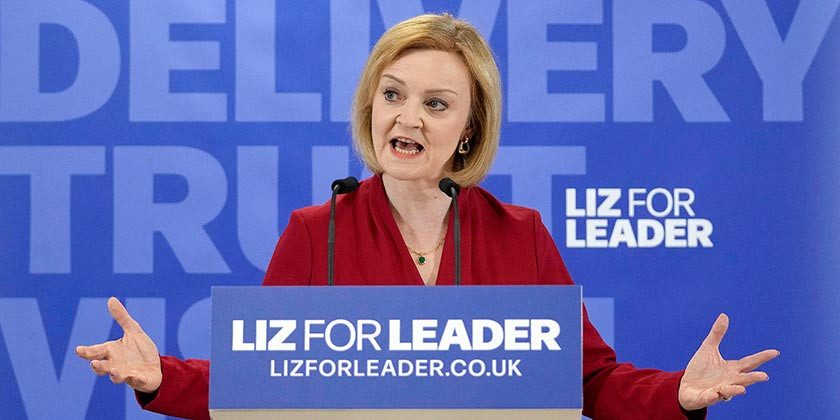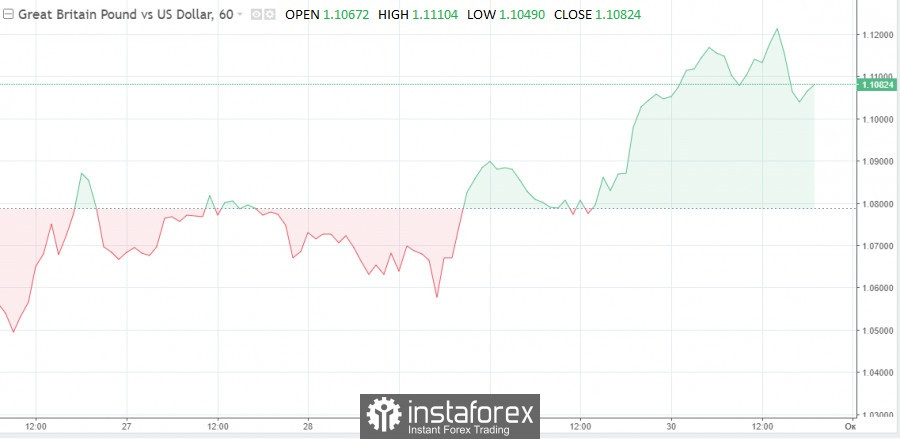
The British pound is trying to end September on a positive note. It was hard to say how successful it was. On the one hand, the pound still found solid footing, posting gains against the dollar, euro and most other major currencies in the past four trading days. The British currency showed real tenacity and, despite the obvious pressure, rose from the shameful all-time low, which it hit with a deafening roar on Monday.
On the other hand, the pound clearly lacks a solid impetus for long-term confident growth. This is probably why the Friday morning hours were marked by an increase in the rate, but the day trading showed the opposite result.
So, as of 06:50 London time, the GBP/USD pair was at 1.1146, and by 14:00 it managed to drop to 1.1082.

The UK economy remains below pre-coronavirus levels, according to recent data. Actually, it is this obvious weakness of the economy that leads the country to further lagging behind other G7 countries and, of course, prevents the national currency from developing a long-term upward trend.
According to data from the Office for National Statistics, UK output unexpectedly rose by 0.2% between April and June. And this is a significant indicator, since before that there was a considerable reduction in production - by 0.1%. It turns out that although the British economy does not shine with positive results, it has not yet fallen into a recession.
Although it is impossible not to mention that the ONS has revised its assessment of the recovery of the UK from the pandemic. And it was revised downward: GDP in the second quarter was 0.2% lower than at the end of 2019.
Despite the positive news about the state of the economy in the second quarter, the overall picture is not the most rosy. Still, the economy of the United Kingdom is in a much worse state today than analysts previously assumed.
Separate data also showed that UK house prices did not rise on a monthly basis, the first time since July 2021. It is clear that the UK housing market has cooled off after the boom of the coronavirus pandemic, which was the result of exorbitantly rising inflation, reducing consumer and other spending of the population, and unusually high interest rates.
Recall, the new British Chancellor of the Exchequer, Kwasi Kwarteng, unveiled an economic plan last week, according to which tax cuts will encourage the country's economy to perk up. But here's the problem: investors responded to this unbeatable plan with a massive sale of the pound sterling and British government bonds.
 English
English 
 Русский
Русский Bahasa Indonesia
Bahasa Indonesia Bahasa Malay
Bahasa Malay ไทย
ไทย Español
Español Deutsch
Deutsch Български
Български Français
Français Tiếng Việt
Tiếng Việt 中文
中文 বাংলা
বাংলা हिन्दी
हिन्दी Čeština
Čeština Українська
Українська Română
Română

